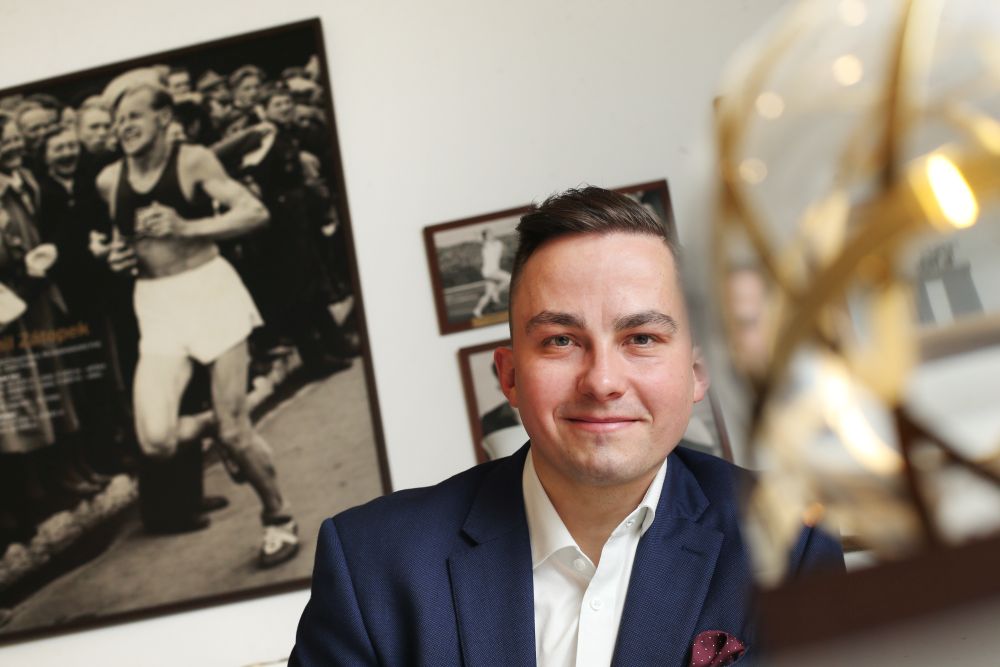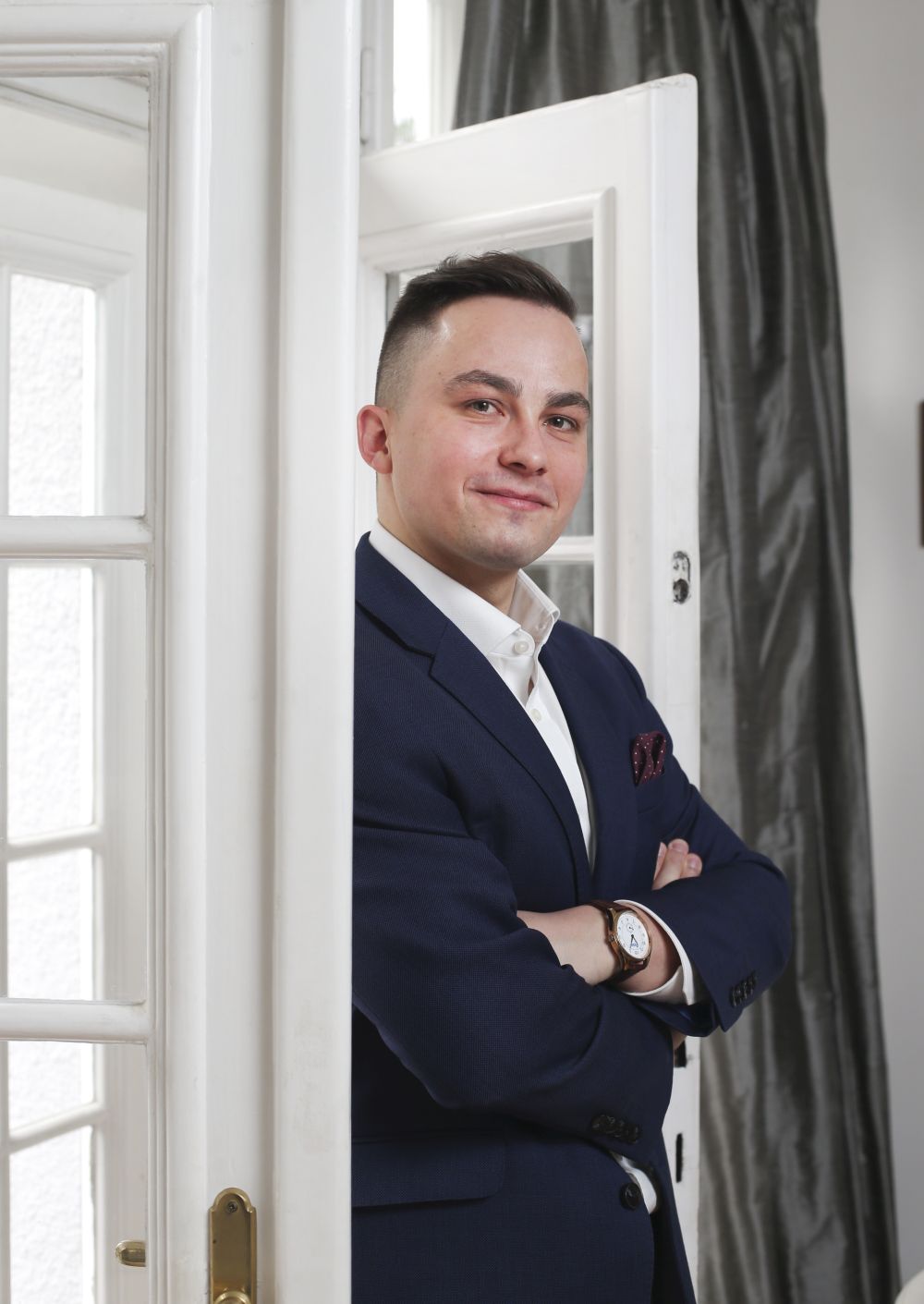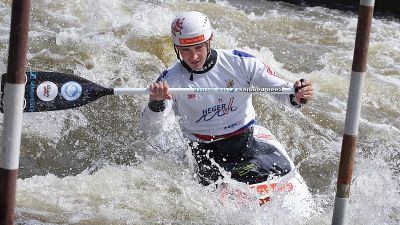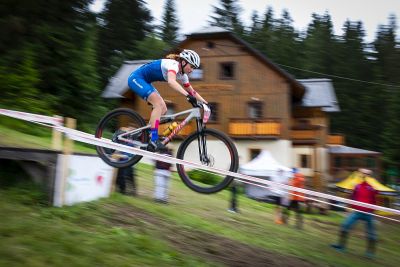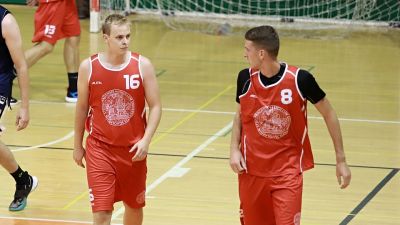He participated in several Olympic Games, first as a volunteer and later as a lawyer for the Czech Olympic Committee. He also went through the anti-Olympic bubble at the Tokyo Summer Games. But he's not headed to Beijing. The reason? Jan Exner, a Ph.D. student at the Faculty of Law of Charles University, has discovered that he enjoys teaching at the university most of all, where he is now also completing research norms and punishment for doping in the world of sport. He told Forum more.
You have been working as a lawyer for the Czech Olympic Committee for more than five years; as a member of the Committee you participated in the Winter Olympic Games in PyeongChang as well as the summer games in Tokyo. What professional and personal experience did you bring back?
They were two completely different experiences. The PyeongChang Winter Olympics were held in the run-up to the pandemic, with spectators, without any major restrictions. I didn't go there primarily as a lawyer, but as a member of the support team. I helped with the running of the Olympic Village, with ticketing, with transportation. I was also there so that I could deal with any legal problem on the spot, for example if an athlete on our team had a positive doping test. Fortunately, it didn’t come to that.
And Tokyo?
The Olympics in Tokyo were completely different because of the strict anti-pandemic rules. We were in a bubble that we couldn't get out of, we only moved along the route of the airport, the Olympic Village, the sports venues. The aim of the precautions was to have as little contact as possible with the civilian population of Japan.
Work-wise, I had a very different role there than in South Korea. I went there as a “Covid liaison officer” / that was my official designation. Long before the Games, we prepared all the precautions and made sure that the sports associations, the athletes and all the other members of the expedition knew the rules and followed them. It was a very demanding job both in the run-up to the Olympics and then at the Games themselves.
And the whole thing was complicated by our unfortunate flight on 16 July, which I was also on. Because I was a close contact of an infected person, I spent the first 14 days of my three-week stay in Tokyo quarantined in a hotel, although I did not catch the virus. Unfortunately, I couldn't help the team personally. Still, I tried to do as much work as I could under the circumstances - and that there was plenty of it, given our positive Covid cases - from the computer in my hotel room. After 14 days, I got to the Olympic Village, was able to soak up a bit of the atmosphere of the Games and continued my work. It wasn't entirely positive in all respects, but in hindsight I rate it as an absolutely amazing life and professional experience.
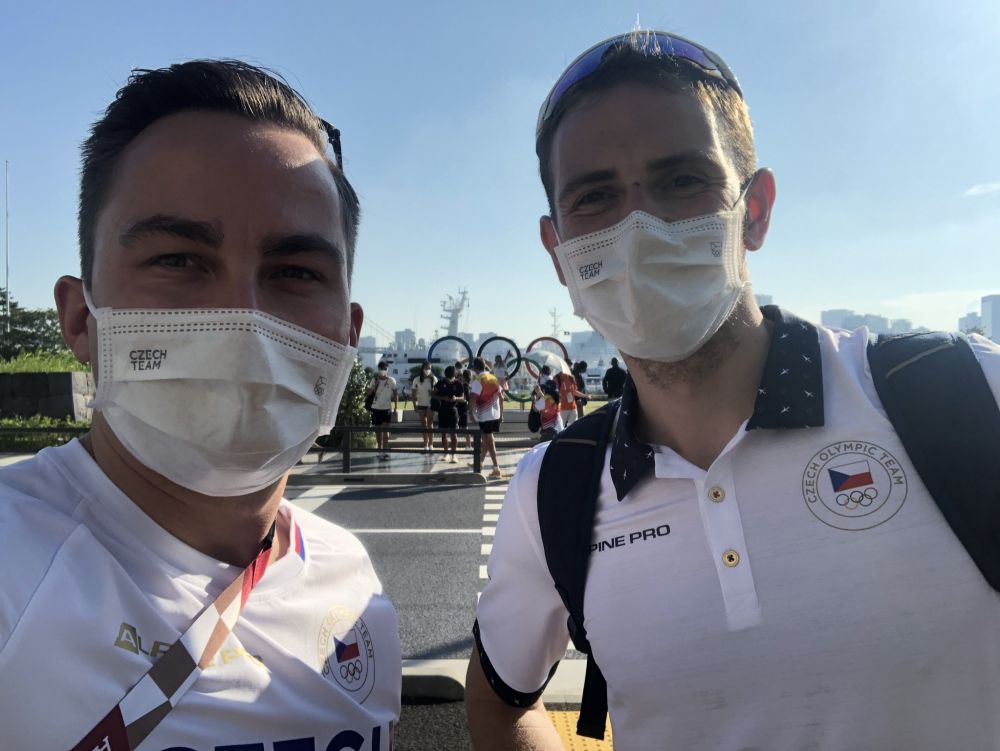
Unlucky: Beach volleyball player and Charles University student Ondřej Perušič (right) saw his Tokyo Olympics marred by Covid-19.
Given that you were the person responsible for the Covid measures and were also on the plane where the members of the expedition became infected, did you have any influence over compliance with the measures during the flight itself?
During the 96 hours before the flight, everyone had to undergo two PCR tests. The second test was done 24 hours before the flight, so that we could be as sure as possible that no one on the plane would be infected. We repeatedly reminded the flight participants to take precautions - i.e. to wear a respirator or nano-mask and limit close contact. On the plane, we tried to seat people so that they were spaced apart. I think we did the best we could in terms of prevention. However, there is always room for improvement, which is why the current measures for the Beijing Olympics will be even stricter and will be even more rigorously enforced.
Can you be more specific?
Already now, with just weeks to go before the Olympics, we have very strict measures set by the Czech Olympic Committee - ideally to work from home, of course to wear respirators and use disinfectant at all times, to limit contact as much as possible. We recommend that athletes and anyone else who is going to Beijing get vaccinated, including a booster dose. There is a very strict rule for the Games, one must either be fully vaccinated or go into quarantine for 21 days after arrival, which no athlete can afford.
The only exception to this rule is for serious medical reasons. There will be three tests before departure. I think that, also in view of what happened in Tokyo, individual responsibility and prevention will also be considerably higher.
Did you bring back any positive personal experiences from Tokyo?
When I came out of quarantine after 14 days, I first went to our common room in the Olympic Village, where gold medallists Jiří Prskavec and Lukáš Krpálek were sitting in chairs. They were celebrating, chatting with the others. I was very sorry that I missed their events, but I was happy to see at least their immediate reaction after they won. But they had to leave Japan the next day, so they almost didn't have time to celebrate their triumph there (all athletes had to leave Japan within two days after the end of their competitions due to anti-pandemic measures).
During your last week in Tokyo, were you able to see any of the Czech athletes?
The strongest experience for me was sport climbing. Until the last moment it was not clear whether Adam Ondra would take gold or finish lower. We cheered for him a lot, it was in the evening outside, there was a great atmosphere.
You are not going to Beijing this time; will you miss it?
I won't, but I'm saying that here and now in Prague but maybe I’ll feel different in February during the Games. I'm no longer acting as “Covid liaison officer”, so I'm not going to Beijing. If nothing unexpected happens, I will support the others from Prague. My colleagues who are going to Beijing will not have an easy job at all. The measures will be really strict.
Moreover, at the end of February, I will be leaving my main job at the COC, because I want to devote myself fully to what I enjoy most, which is teaching at the Faculty of Law of the Charles University. We have tentatively agreed on external cooperation with the COC.

The opening returns to the Bird's Nest Stadium, where Jan Exner saw the ceremony in 2008 as a member of the Olympic Youth Camp.
Last year, the Dean of the Faculty of Law, Professor Jan Kuklík, awarded you the prize for best teacher. You are very popular among students, what do you do to win their support?
I simply enjoy teaching, I find it extremely rewarding. I think what the students appreciate is the enthusiasm for the field as a whole, as well as for teaching. Students sometimes write to me saying that my enthusiasm is contagious. I try to see things from their perspective. I have structured the seminars to make them as interesting as possible. I bring examples from my own and my colleagues' practice into the classroom.
At the same time, I try to keep developing my didactic skills. I am very happy for the possibilities we have in this respect as teachers at the university and faculty. For example, the Legal Skills Centre does an excellent job. At the same time, however, I would appreciate it if our faculty and the university as a whole would do even more to support the development of didactic skills. There is a great deal of emphasis on science, which is, of course, very important. However, we should not forget our other role and develop our didactic skills as well.
In your dissertation you focused on doping in sport, can you outline your research topic?
Under European Union law, I focus on two basic areas and their connection. One is the proportionality of sanctions for doping. I am interested in whether the way the sanctioning system is currently set up under the World Anti-Doping Code and other anti-doping rules corresponds to the internationally recognised principle of proportionality, which is also inherent in European Union law.
The second thing I am trying to link this to is the area of anti-doping education and prevention.
I am trying to find out how sports organisations should approach anti-doping education so that there is effective prevention of both intentional and unintentional doping. This would reduce the need to impose sanctions, including disproportionate ones.
In your opinion, are the penalties for doping now appropriate?
In my research, I have concluded that some sanctions as currently set out in the World Anti-Doping Code are disproportionate in terms of their length. At the same time, the sanctioning flexibility that the decision-making bodies have is very limited. This means that it is not possible to take full account of both the objective circumstances of a particular case and the subjective circumstances relating to the athlete. In my opinion, the decision-makers are therefore not always in a position to impose appropriate penalties.
I also conclude that anti-doping organisations underestimate the role of prevention and education. I believe that we currently overestimate the role of sanctions and their deterrent and punitive effect and underestimate the role of education. We should devote more space and resources to education and, in some respects, reduce sanctions and increase the discretion of decision-makers. This is, according to the conclusions of my research, a more effective way of combating doping.
Should doping be considered a criminal offence?
If an athlete breaks anti-doping rules, punishment is unavoidable. But at the same time, I think it should be a disciplinary punishment at the level of the sports organisations and should be proportionate to the seriousness of the act. I don't think it is right that a first, albeit knowing, anti-doping rule violation is followed by a four-year ban. That is a devastating sanction. Nor do I advocate the criminalisation of doping - i.e. that athletes who take performance enhancement substances should receive criminal penalties. I see criminal law as a tool of last resort to punish the most socially serious illegal acts that cannot be effectively punished in any other way. In my view, the use of doping substances or methods can be effectively punished through anti-doping rules. It is the traffickers and those who sell banned substances who should be punished, not the athletes for their use.
| JUDr. Jan Exner |
| As a Ph.D. student at the Law Faculty of Charles University, he focuses on European Union law and on law and sport. He also works for the Czech Olympic Committee, where he takes care of the organization's foreign legal agenda. One of his main tasks is to monitor and consult with sports federations on the qualification systems for the Olympic Games to avoid a repeat of the situation in 2016, when Martina Sáblíková was unable to compete in the cycling time trial at the Rio de Janeiro Games due to a misinterpretation of the rules. In the future, however, Jan Exner wants to focus more on teaching students at the expense of working for the COC. He teaches at the Law Faculty at Charles University and is also involved in the preparation of a new course on Law in Sport for students of the Faculty of Physical Education and Sport of Charles University |


